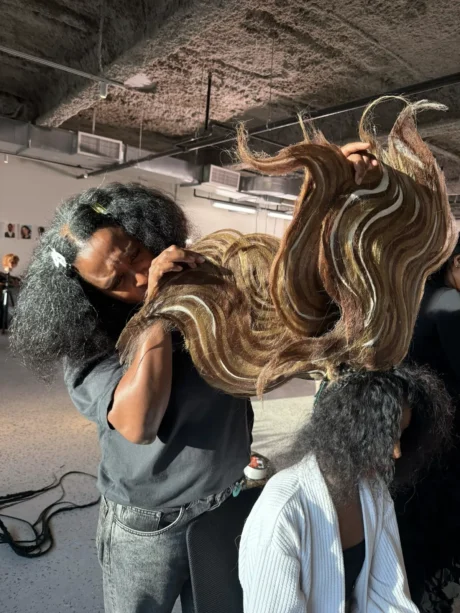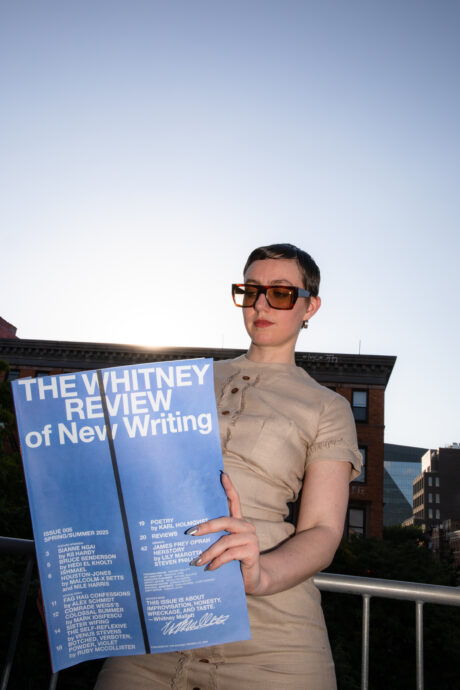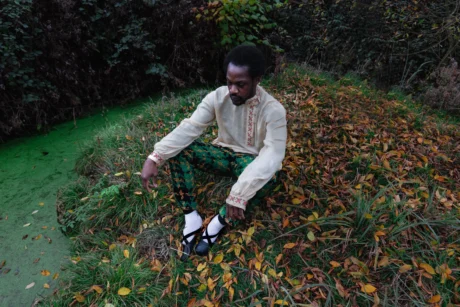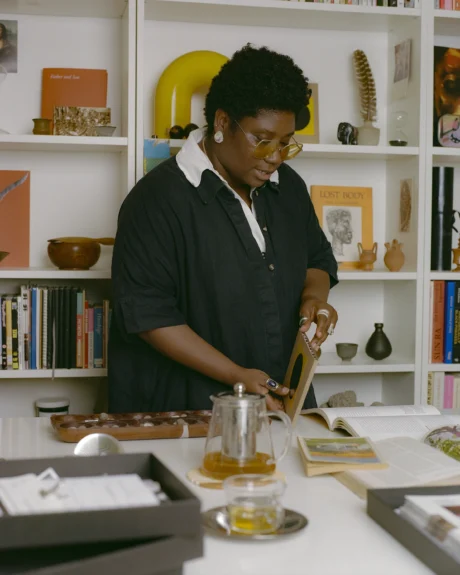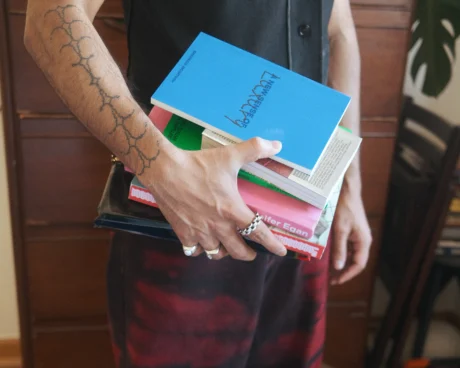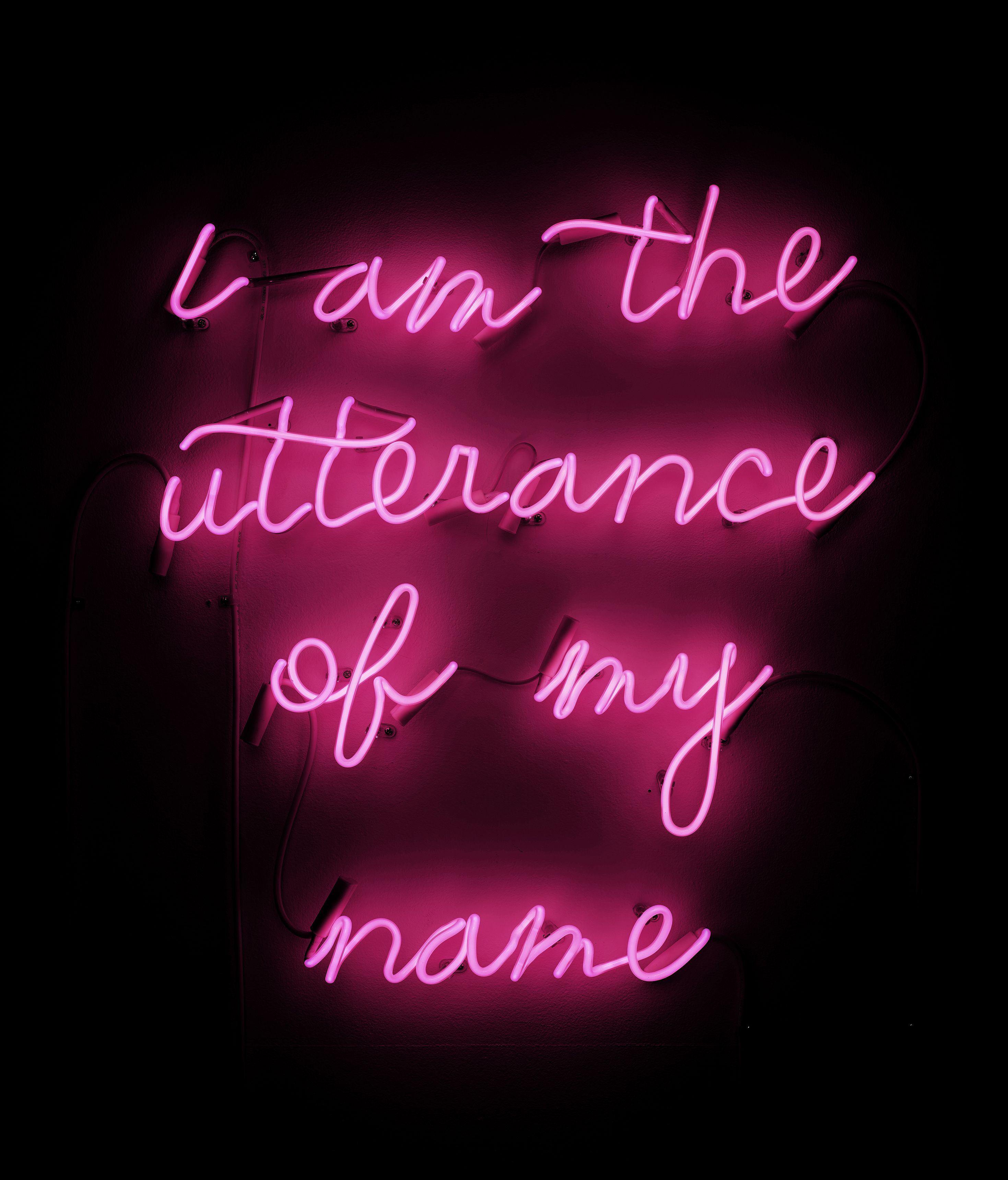
I have probably spent (wasted) a year of my life thinking about, talking about and noting down names on scraps of paper. It started long before the conception of my daughter. It’s probably because, growing up, I hated my name. The sounds stuck in my throat every time I was asked it, and I couldn’t enunciate it properly so that often people thought I was called “Soleil” or the less flattering, “Shallot”. Even my name’s meaning was generic and boring: “free man”—but being a French name and diminutive of Charles, it can also be interpreted as “little man”. Thanks, Mum and Dad.
I was born in Britain in the mid-eighties, bang in the middle of Maggie’s reign, a grim conservative era not dissimilar to the present. In times of political turmoil and unrest, parents tend to veer towards solid, stable, reliable names. In 1985, the most popular name for girls was Jessica, and Michael for boys. In 2018, it was Olivia and… Oliver. If you needed further evidence that politics affects what we call our kids, BabyCentre UK reports that registrations for David and Greta are up, a homage to the climate change activists, while other eco-conscious names, like Ivy, Sage, Rowan and Willow, are all rising in popularity according to their stats for 2019 so far.
“Nowadays, our name is a synecdoche online pharmacy buy estrace online with best prices today in the USA for our entire persona—we so often appear as just a name floating in someone’s inbox“
Having been through the painful process of choosing a child’s name, I now appreciate how great a responsibility it is. At some point during my pregnancy, I read an astonishing article published in the Financial Times about the experiences of a political journalist with a name that was always assumed to be male; she wrote about all the ways the mistake had benefited her in her career (the majority of which has been conducted online) and the incredulous reactions when people discovered the truth. A searing 2013 study conducted at Yale, known as the John vs Jennifer study, made the gender bias clear: all-but identical CVs were sent, with only the name changed. Guess who got more job offers?
A similar study has been conducted on race: research conducted in the UK in 2017 found that job applicants with ethnic names—though they were all British-born—had to send sixty per cent more applications out before receiving an offer. Is it any wonder that so many BAME people “whiten” their names to mask their identity? A Middle-Eastern friend recounted a similar story to me at the weekend: at work amongst the Harriets, Izzys and Millys, she said, they couldn’t pronounce her name, and so they simply changed it. The only time she says she gets to use her actual name is when she orders coffee.
View this post on Instagram
Nowadays, our name is a
synecdoche for our entire persona—we so often appear as just a name floating in someone’s inbox or flashing as a notification on WhatsApp. We are constantly reminded of people’s names, and it influences the image we have of that person. There are those people you’ve been emailing for months and have never met, but you assume from their double-barrelled surname that they’re upper-class, and from their first name that they’re white and from Kent. Not a few times have I disappointed on arrival, since my surname is surmised to belong to a tall blonde Scandinavian woman and not an average-sized brownish person whose Sri Lankan family line was colonized by the Dutch five-hundred years ago.
When it comes to artists, we certainly expect them to have remarkable, standout names: the art world lusts after unusual names that allude to a transcultural existence. In the past, if you were a male artist, your surname was enough: in the case of Picasso, this was probably for the best as his full name, in case you’ve forgotten, was Pablo Diego José Francisco de Paula Juan Nepomuceno María de los Remedios Cipriano de la Santísima Trinidad Ruiz y Picasso.
“Artists, typically, do not like to be put in boxes. But naming things is a way to understand them”
Of course, Picasso was born at a time that Spanish naming traditions were still strong—his name in its entirety honours relatives, saints and locations of importance to the family. There is an Aboriginal tribe that assigns names to people which correspond to things in the surrounding environment; however, when that person dies, that word can no longer be used (according to a wider tradition of not naming the deceased in Aborigni culture) so a new word must be invented. It is, I think, quite a beautiful way of connecting our community to the world, so that we are part of it. But it does make the language difficult to navigate.
Naming your child is a minefield—you have to go through the whole revolution of possible rhymes the school bully could make up. Sadly, I’ve failed on that front since my daughter’s name rhymes with poo. Names of old enemies or pets are automatically thrown out, as are names that have been co-opted by consumerism (bye, Alexa) or ruined by terrible pop stars and politicians. If you and your partner have different mother tongues, there’s a whole other gauntlet of clashes between meanings and sounds in the respective languages… The whole thing becomes torturous and you end up calling your child Bob (apologies to Bob Ross). What if Bob doesn’t want to be Bob? They could always retitle, like some of the world’s most famous artworks: the Mona Lisa, for example, was renamed by the masses. In hip-hop, meanwhile, a name change at some point is standard practice.
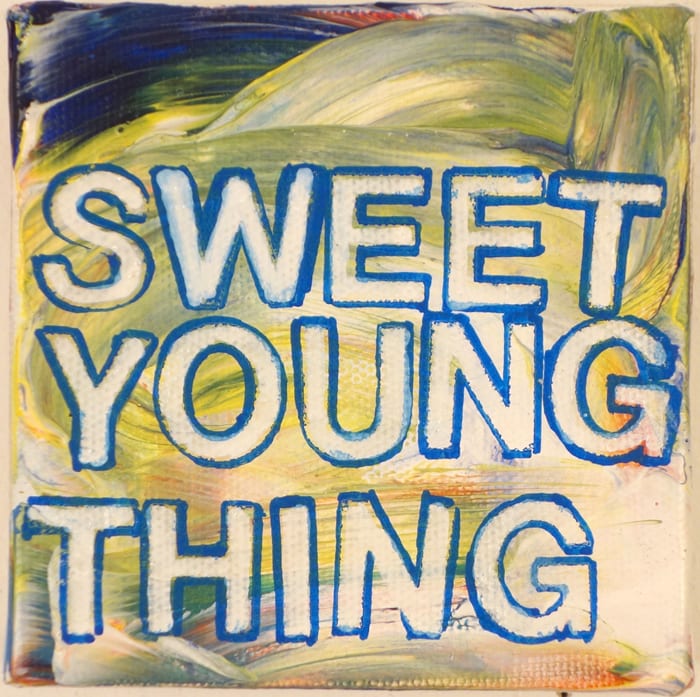
Betty Tompkins, Sweet Young Thing, 2013
Artists, typically, do not like to be put in boxes; they don’t like to be categorized beyond their own name. But naming things is a way to understand them, and it’s important. The artist Sophia Wallace recognizes this; she’s done plenty of work to make us name female genitalia, to learn about the things we don’t know by their names. We also know, from artists like Betty Tompkins, that names given to us—rather than claimed by us—are often inflicted like wounds. The way we respond to certain names reveals a lot about us, what we believe in, what our prejudices are, and what we wish to identify as. Any parent naming their child is already projecting part of that identity in the form of their own hope. The way we select names for our children has a lot to do with the way we feel about ourselves, not our children. They say people grow into their names but sometimes, perhaps, it’s better that they make them their own.
I suppose the worst fear of a millennial, urbanite, creative parent—if the names being called out at the playgrounds of East London are anything to go by—is having a name that is just “normal”. I always found my own name generic—it didn’t allude to our heritage, I didn’t think it gave me any unique character. I thought “Sky” would have been a much better name (though I have since abandoned that idea). What is worse, especially in the art world, than being like everyone else?
